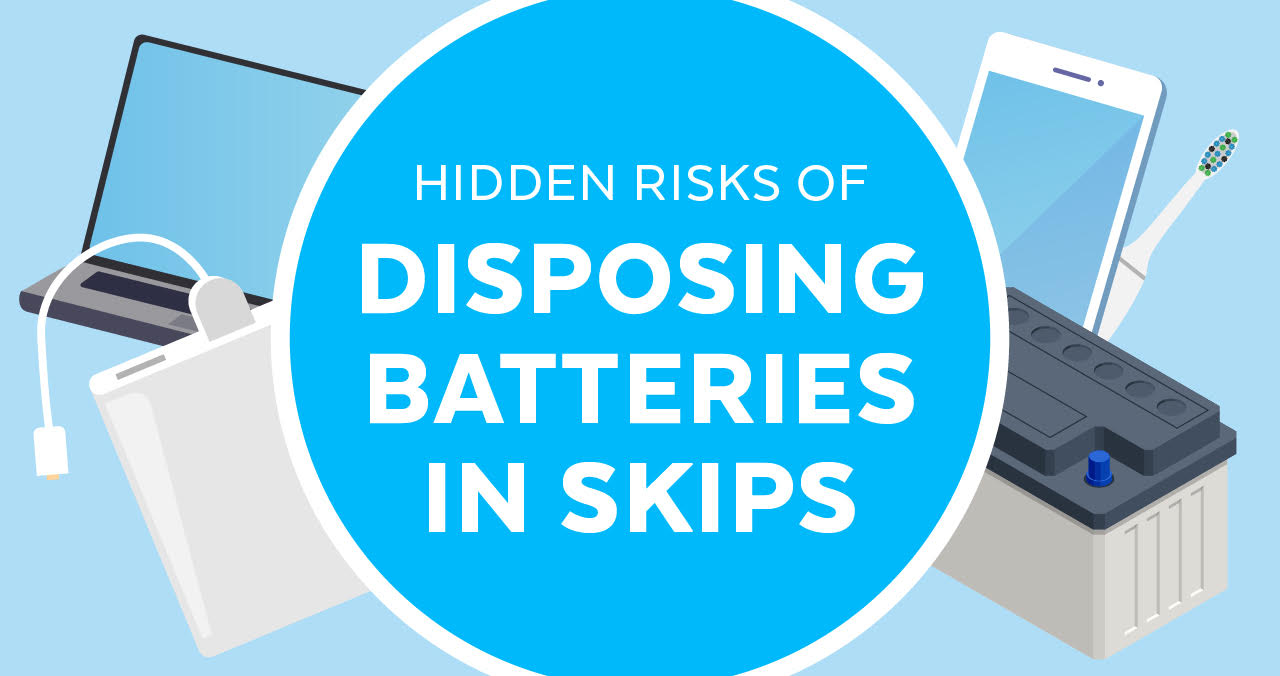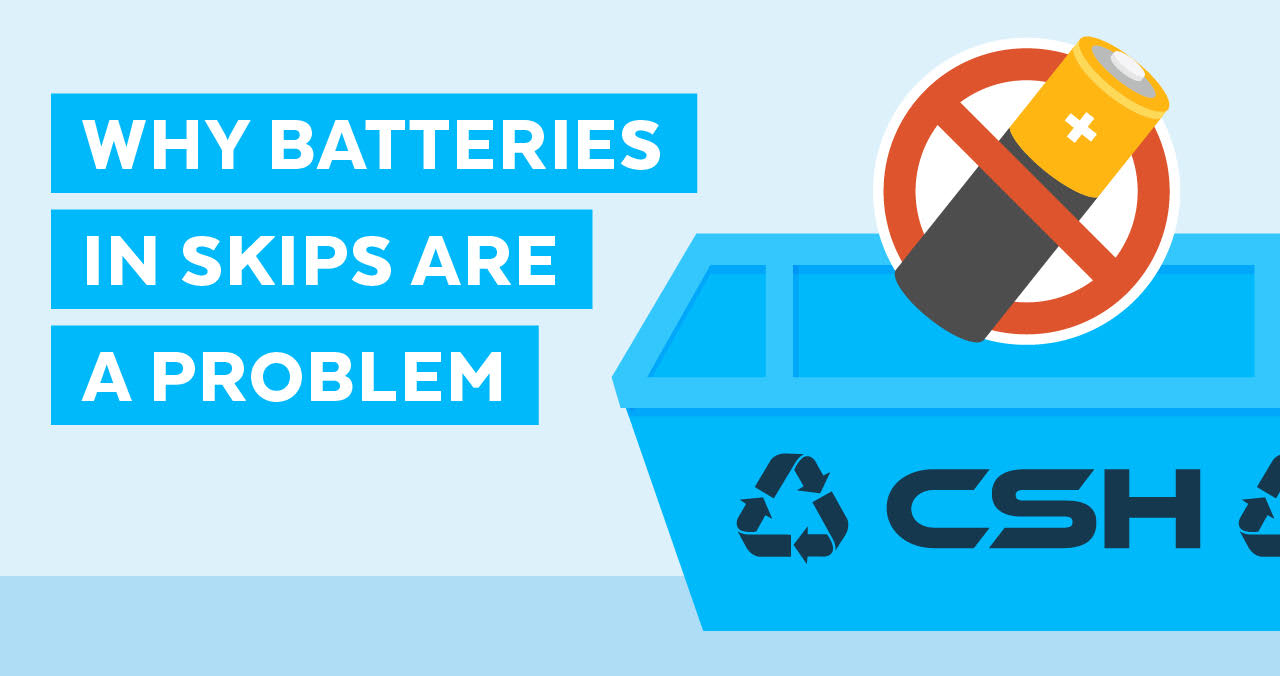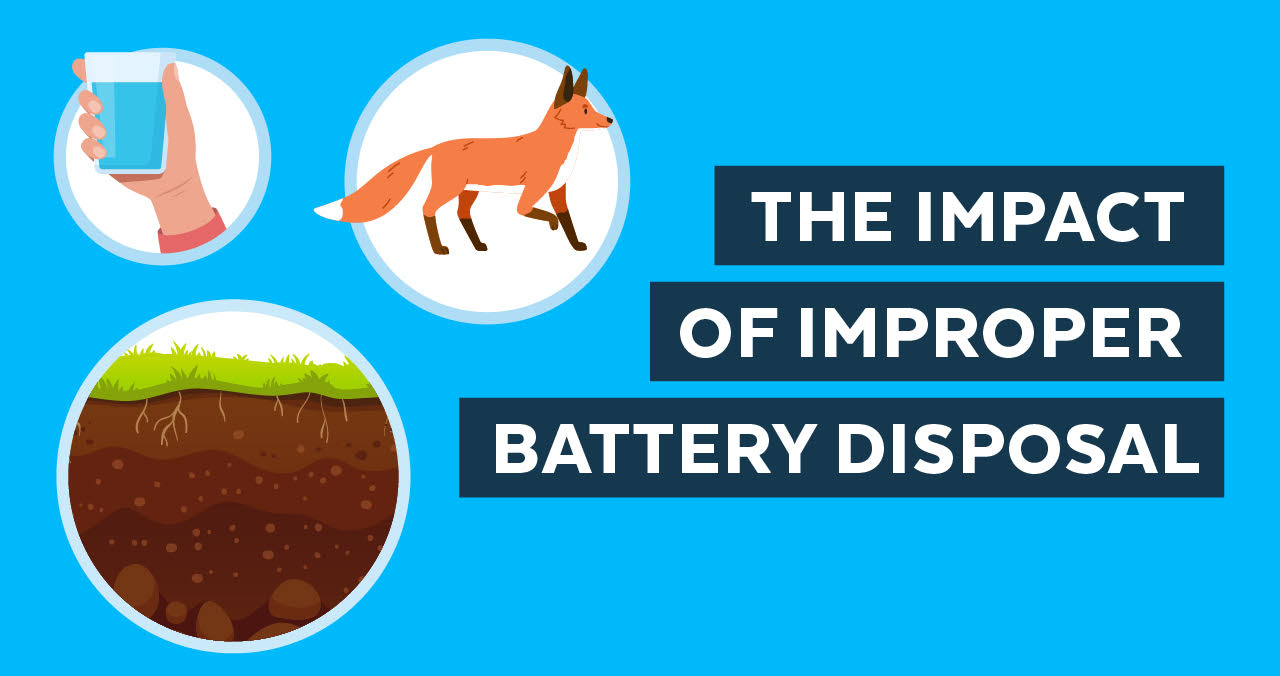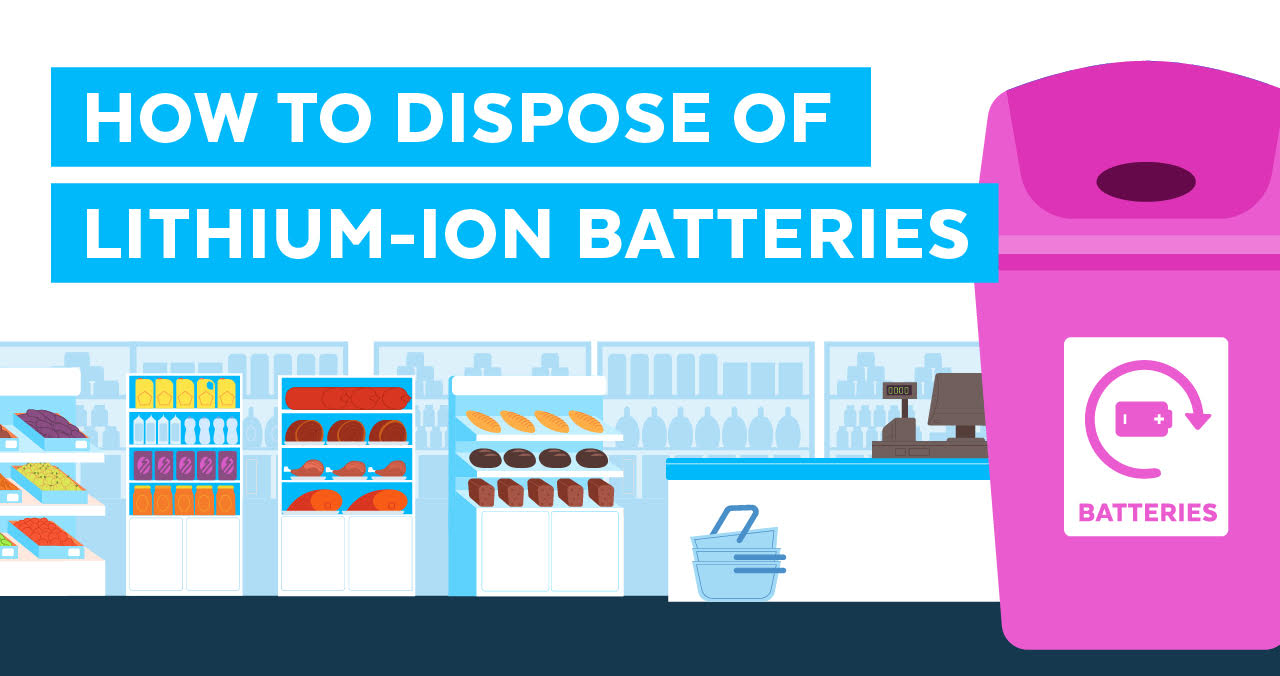The Hidden Risks of Disposing of Batteries in Skips
Hiring a skip is a great way to dispose of all kinds of waste, but it’s important that you understand what you can and can’t put into one. That’s because some waste contains materials that can be harmful to people or the environment if they are not disposed of in the right way.
No battery of any type should ever be placed into a skip, and in this article, we’re going to explain why this is the case.

Why batteries in skips are a problem

Batteries come in a variety of types, but all contain materials that can be dangerous when disposed of carelessly. These include:
- Acids: Car batteries commonly contain sulphuric acid that is mixed with water to create an electrolyte that activates the lead in the battery.
- Alkalis: Common household batteries contain an alkaline such as potassium hydroxide, which carries out the same function as the acid in a car battery.
- Heavy metals: Toxic heavy metals used in batteries include mercury, lithium, cadmium and lead.
- Flammable materials: Lithium-ion batteries are especially prone to catching fire if handled carelessly, and this
can lead to a violent or even explosive reaction known as a thermal runaway.
The impact of improper battery disposal

All the above materials can have a significantly harmful impact on people and the environment if not disposed of in the prescribed way. For instance, the acids and alkalis found in batteries can cause serious harm to us if they come into contact with our skin or eyes.
The impact on the environment and on wider human health can be particularly harmful if materials present in batteries are allowed to leach into the soil or water courses. That could lead to these poisonous substances getting into drinking water or even the food chain, while the potential damage to plants and wildlife could be catastrophic.
How to dispose of lithium-ion batteries

Lithium-ion batteries can catch fire if they become damaged – something that could easily happen if they are placed in a skip and have heavy materials dropped onto them. And if that happens, the violent reaction that can follow can easily lead to further significant damage, whether as a result of fire or even an explosion.
Just dropping your old battery into a skip could have a devastating impact, potentially leading to serious injury to those caught up in it. So what should you do with them instead?
Firstly, make sure that the battery has been completely discharged – this will reduce the potential for any thermal incident following disposal.
We’ve already explained why putting lithium-ion batteries in a skip is dangerous, but dropping them in the bin or in any other general waste is just as bad. Instead, try taking your used batteries to
- Recycling centre: your local tip should have the facility to accept any old batteries you need to dispose of, including lithium-ion ones.
- Supermarket: many supermarkets now have special bins where you can drop off any old batteries safely.

Here at CSH Environmental, we’re concerned to ensure that all the waste put into our skips is recyclable and safe for our operatives to handle. We’re also committed to providing as environmentally friendly a service as possible – our latest waste figures show that we currently recycle over 99% of the waste we collect.
Get in touch now if you’d like more advice on what can and can’t be put into one of our skips or to make a skip hire booking ready for your next waste disposal requirement.
back to latest news